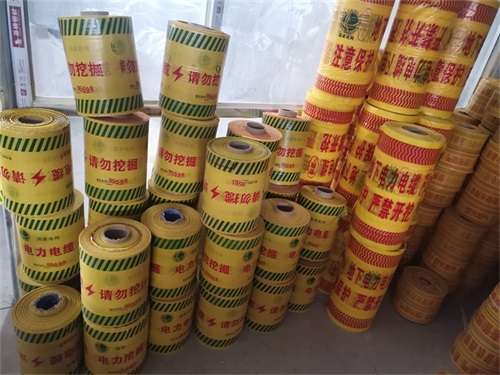 滨州恒通电力器材有限公司
滨州恒通电力器材有限公司
联系电话:400-879-6696
服务热线:183-6493-6808
联系地址:山东省滨州市无棣县海丰街道前桥村112号
一、定义与规模
1、 Definition and scale
分布式光伏发电通常是指在用户端安装的小型光伏发电系统,其发电量一般在数千瓦数百千瓦之间。这些系统直接连接到配电网,并为用户提供电力。相比之下,集中式光伏发电则是在大型电站中安装的大型光伏阵列,其发电量通常在数兆瓦数百兆瓦之间。这些电站通常通过高压输电线路将电力传输到远方用户。
Distributed photovoltaic power generation usually refers to small photovoltaic power generation systems installed at the user end, with a power generation capacity generally ranging from several kilowatts to several hundred kilowatts. These systems are directly connected to the distribution network and provide electricity to users. In contrast, centralized photovoltaic power generation refers to the installation of large photovoltaic arrays in large power plants, with power generation typically ranging from several megawatts to hundreds of megawatts. These power stations usually transmit electricity to remote users through high-voltage transmission lines.
二、系统结构与运行方式
2、 System structure and operation mode
在系统结构上,分布式光伏发电系统通常与配电网直接相连,形成一个并网系统。在这种系统中,配电网不仅传输电能,还为光伏系统提供必要的支撑,以确保系统的稳定运行。而集中式光伏电站则通过高压输电线路与大电网连接,其运行受到大电网的调度和控制。
In terms of system structure, distributed photovoltaic power generation systems are usually directly connected to the distribution network, forming a grid connected system. In this system, the distribution network not only transmits electrical energy, but also provides necessary support for the photovoltaic system to ensure its stable operation. The centralized photovoltaic power station is connected to the power grid through high-voltage transmission lines, and its operation is subject to the scheduling and control of the power grid.

三、环境影响与土地利用
3、 Environmental Impact and Land Use
在环境影响方面,分布式光伏发电通常对环境的影响较小。由于其规模较小,对土地和水资源的需求较低,且在安装过程中无需大规模的土地开发。然而,集中式光伏电站由于规模较大,往往需要大面积的土地开发,这可能导致土地资源的占用和生态环境的变化。此外,集中式电站的建设还可能涉及水资源的使用和自然景观的改变。
In terms of environmental impact, distributed photovoltaic power generation usually has a relatively small impact on the environment. Due to its small scale, the demand for land and water resources is low, and there is no need for large-scale land development during the installation process. However, centralized photovoltaic power stations often require large-scale land development due to their large scale, which may lead to the occupation of land resources and changes in the ecological environment. In addition, the construction of centralized power stations may also involve the use of water resources and changes in natural landscapes.
四、能源利用与效率
4、 Energy utilization and efficiency
在能源利用和效率方面,分布式光伏发电由于靠近用户,能够更好地适应电力需求的变化。同时,由于其规模较小,维护和运营相对简单,能源转换效率较高。而集中式光伏电站由于规模较大,需要大量的电力传输和转换,可能会导致能源损失和效率降低。此外,集中式电站的建设和维护成本通常较高,需要大规模的投资才能实现经济效益。
In terms of energy utilization and efficiency, distributed photovoltaic power generation can better adapt to changes in electricity demand due to its proximity to users. Meanwhile, due to its small scale, relatively simple maintenance and operation, and high energy conversion efficiency. However, centralized photovoltaic power stations, due to their large scale, require a large amount of power transmission and conversion, which may lead to energy loss and reduced efficiency. In addition, the construction and maintenance costs of centralized power stations are usually high, requiring large-scale investment to achieve economic benefits.
五、可扩展性与灵活性
5、 Scalability and flexibility
在可扩展性和灵活性方面,分布式光伏发电具有明显的优势。随着技术的进步和成本的降低,分布式光伏系统的规模和性能可以轻松地扩展和升级。此外,由于其位于用户端,可以灵活地满足特定用户的能源需求和偏好。相比之下,集中式光伏电站的建设需要大规模的投资和长时间的规划,其扩展和灵活性相对较低。
Distributed photovoltaic power generation has significant advantages in scalability and flexibility. With the advancement of technology and the reduction of costs, the scale and performance of distributed photovoltaic systems can be easily expanded and upgraded. In addition, due to its location on the user side, it can flexibly meet the energy needs and preferences of specific users. In contrast, the construction of centralized photovoltaic power stations requires large-scale investment and long-term planning, and their expansion and flexibility are relatively low.
六、经济性与
6、 Economy and investment return
在经济性方面,分布式光伏发电通常具有更高的率。由于其规模较小,建设和运营成本较低,且能够快速回收投资。此外,由于分布式光伏系统可以为用户提供电力供应保障和收益,因此其经济效益更加明显。而集中式光伏电站的建设成本较高,且需要大规模的资本投入和长时间的运营才能实现经济效益。
In terms of economy, distributed photovoltaic power generation usually has a higher investment return rate. Due to its small scale, low construction and operating costs, and ability to quickly recover investment. In addition, due to the fact that distributed photovoltaic systems can provide users with electricity supply guarantees and energy-saving benefits, their economic benefits are more significant. The construction cost of centralized photovoltaic power stations is relatively high, and large-scale capital investment and long-term operation are required to achieve economic benefits.

截屏,微信识别二维码